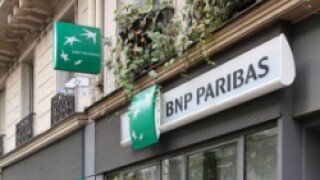Derivs - FX
-
LCH.Clearnet has appointed a seasoned veteran as the new group head of technology and operations.
-
We have become a bit spoiled. The minutes from the March Federal Open Markets Committee meeting and from other recent meetings provide more insight into the thinking of the world's most important monetary policy maker than would ever have been expected decades ago. The Fed began publishing its minutes in 1993, but the level of disclosure has only increased with time. But is the Federal Reserve's reliance on market based information logically consistent with its mandate? By Jared Woodard, BGC Financial
-
BNP Paribas has made an experienced hire to its foreign exchange trading business in London.
-
Global swaps participants can benefit from using decentralised, multitool approaches towards regulatory reporting in order to reduce costs and increase efficiency, according to a data vendor.
-
The Securities Industry and Financial Markets Association (SIFMA) has urged US regulators to disregard recommendations that the asset management industry should be regulated like large banks.
-
The internationalisation of China’s capital markets, dollar/offshore renminbi currency volatility and northbound investment on the Shanghai-Hong Kong Stock Connect programme are driving more trading in renminbi currency futures, according to Hong Kong exchanges and Clearing Limited.
-
The European Securities and Markets Authority (ESMA) is centralising trade data submissions from trade repositories and trading venues via European national competent authorities, facilitating data harmonisation, transparency and access.
-
A central counterparty stress test framework proposed by LCH.Clearnet assesses risk impacts in several adaptive scenarios under the cover 2 requirement and a default auctioning protocol.
-
FX and macro volatility is back in a big way, so the succession of miserable quarters in fixed income, currencies and commodities should be over. But investment banks have not fixed long running problems with the business.
-
Firms with trade reporting obligations can save resources allocated to complying with reporting requirements by outsourcing their requirements to a third party provider. This can reduce initial system building costs, as well as provide better adaptive abilities in the future, according to Sapient Global Markets.
-
Swaps market participants face new challenges with delegated reporting liabilities as trade reporting requirements have evolved globally, according to research from Sapient Global Markets.
-
Asset managers and the funds that they manage do not present systemic risk according to a letter to the Financial Stability Oversight Council from two trade associations, and as a result, should be independently reviewed by the Securities and Exchange Commission.

